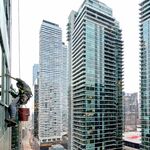lead82
Senior Member
It may seem counterintuitive but the reason for high VIA subsidies is because the service levels are so low in comparison to the fixed costs to operative the services. We should look at immediately increasing frequencies of services to reduce the per rider subsidy. I recall there was a study that showed the Ocean operating costs are the same now when it runs 3x a week then when it ran 6x a week.
Part of the reason that Via is not top of mind for travelers outside the corridor is because the service frequencies SUCK. The service is non-existent and only those that absolutely have no option use it. Those with options will not plan their trips around a service that runs a few times a week. Daily service should be an absolute minimum.
I'm anxiously waiting an announcement by the Feds to find Vias HFR proposal. It would be a good step forward.
Part of the reason that Via is not top of mind for travelers outside the corridor is because the service frequencies SUCK. The service is non-existent and only those that absolutely have no option use it. Those with options will not plan their trips around a service that runs a few times a week. Daily service should be an absolute minimum.
I'm anxiously waiting an announcement by the Feds to find Vias HFR proposal. It would be a good step forward.




